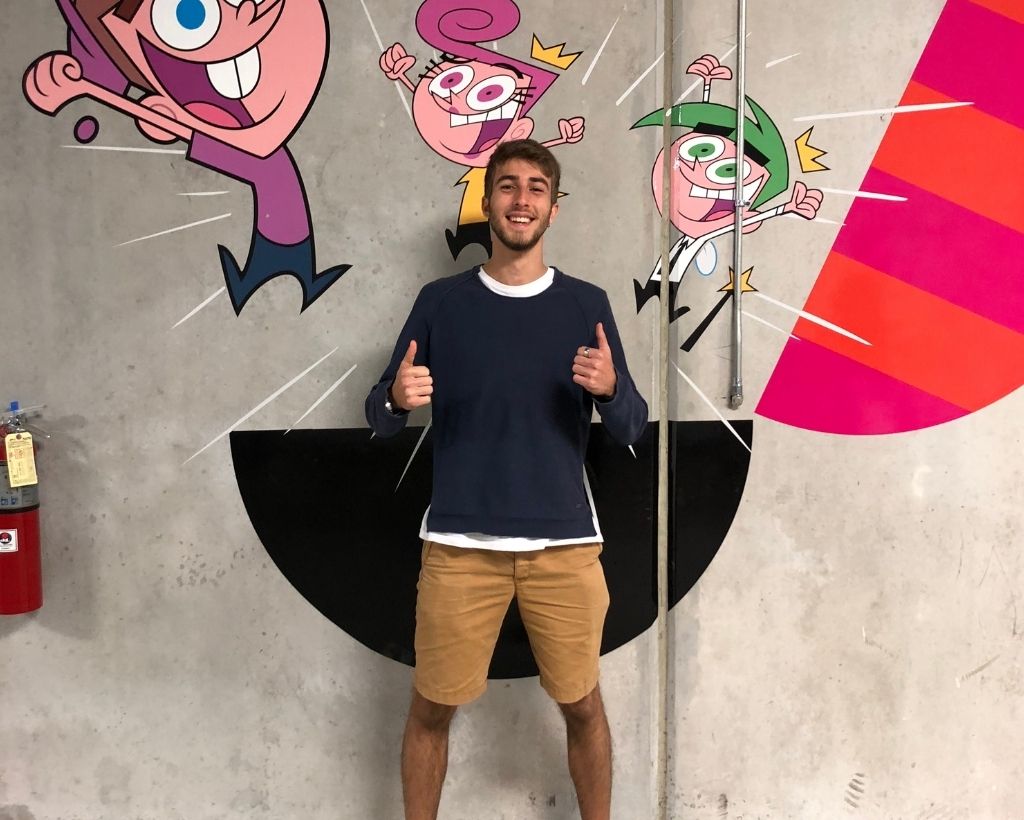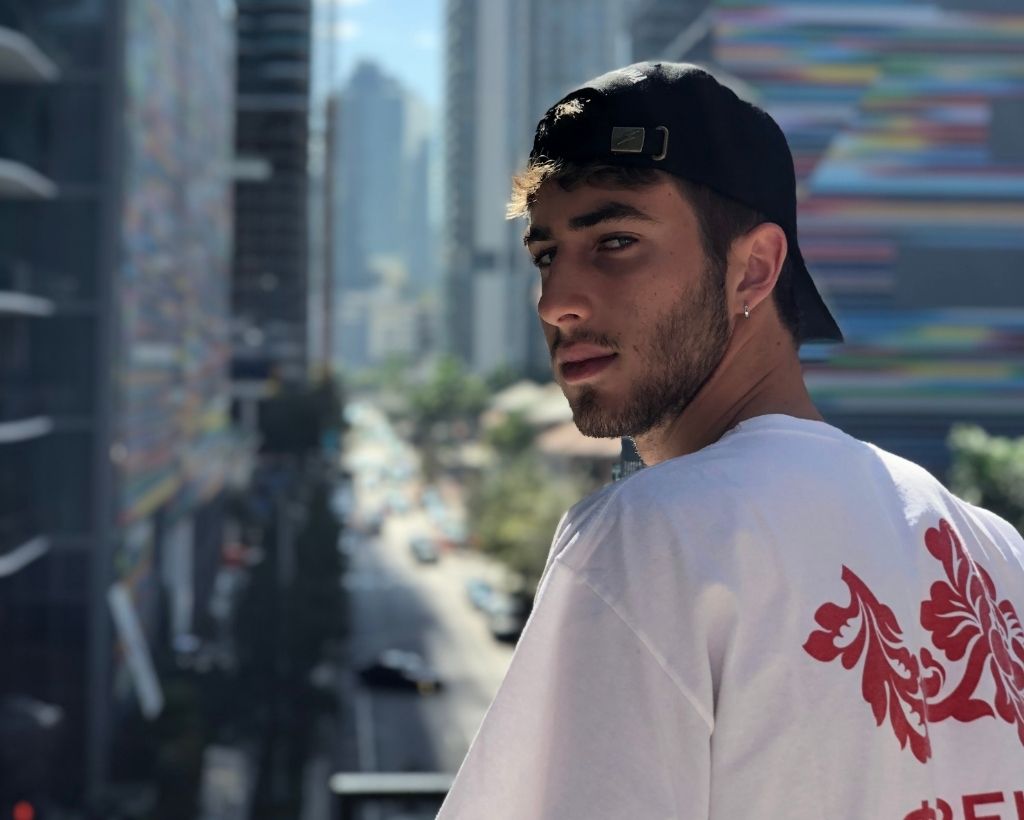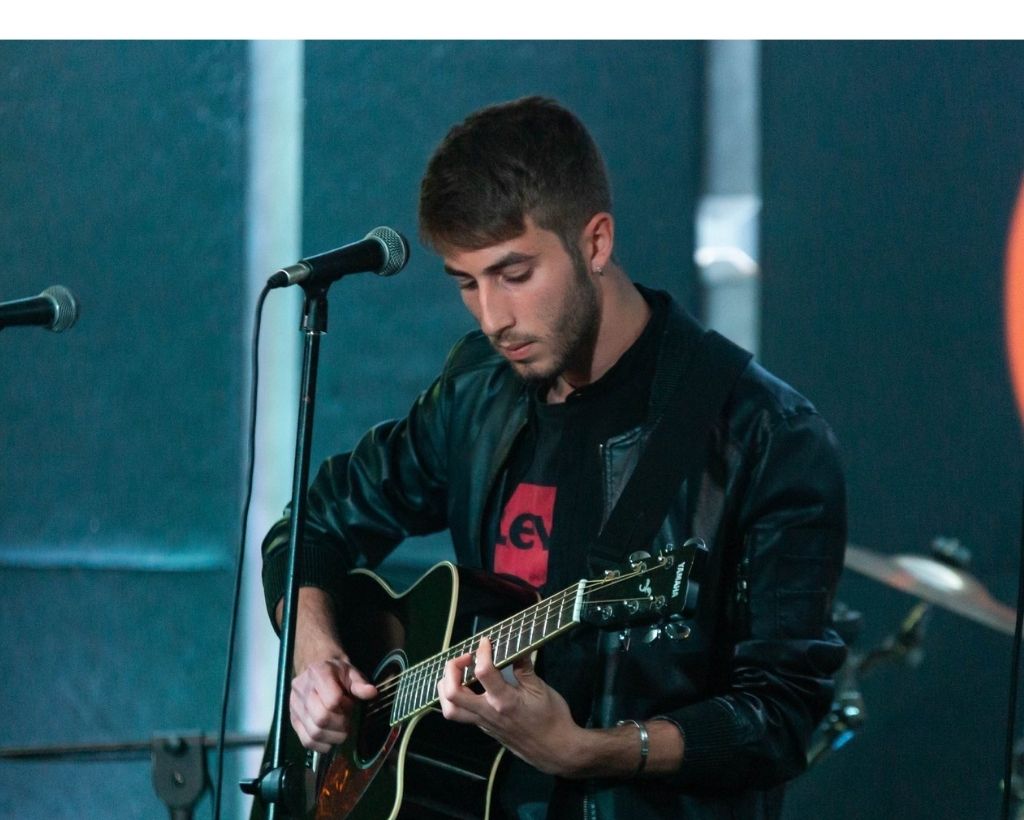Speaking truth in a world of echoes
Turning raw emotion into a melody for belonging
Italian artist Maida turns vulnerability into strength through music, crafting songs that reflect the confusion, beauty, and hope of growing up in a world that rarely stops to listen.
Lorenzo Maida, known artistically as Maida, is part of a generation of young Italians using music not just as a career, but as an existential tool. A singer-songwriter born with a deep sensitivity and shaped by global experiences in television, theatre, and cinema, he has chosen music as his purest means of expression.
With two EPs and over a dozen singles released, his music dives into the intimate struggles and universal emotions of youth: identity, belonging, vulnerability, and the search for meaning in a society that often discourages depth.
With humility and poetic clarity, he invites us to climb to the top of the Gianicolo—a hill in western Rome that offers one of the most scenic views of the city—and see our lives, and ourselves, from above.
“Ti sei mai visto dall’alto, dal punto più alto del Gianicolo?” (“Have you ever seen yourself from the top of Gianicolo Hill?”) is how Maida introduced in his latest single Criceto to the world. Not with a slogan or a chorus designed to sell, but with a question—one that disarms, slows you down, and asks you to feel.
It’s the kind of sincerity that defines Maida’s music—and Maida himself. “I don't write to impress. I write because I need to.”
Sitting across from him, it’s clear he’s not just saying that for effect. There’s a calm honesty to his words, a gentle urgency, as if his music were the only way he could make sense of the world—or leave something behind in it.
Maida’s musical journey started quietly in his bedroom, alone with a guitar. He was 12 when he picked it up, more out of instinct than ambition. “It was my refuge, a place I could speak without interruption,” he says.
By his teens, he was writing his own songs, crafting them first with voice and guitar before expanding into fuller arrangements thanks to collaborators from the Roman music scene. “I learned to trust producers who didn’t want to change me, but to understand me.”
Maida’s connection to performance goes even further back. As a child, he studied musical theatre, and in his teens found himself on international movie sets, including a major role in Club 57, a Nickelodeon series filmed between Miami and Italy and distributed in 28 countries.
“That experience changed me; I saw how emotions are universal. Whether you’re in Naples or New York, a teenager feels heartbreak, hope, confusion. The language changes, the feeling doesn’t,” he says.
He also appeared in well-known Italian TV productions like Nero a metà, and national advertising campaigns. But despite the screen success, it was music that called him back, again and again.

“There’s something about a song that no camera can capture. When someone listens to you on headphones, you’re closer than any scene on TV. You’re inside their world.”
Maida lyrics aren’t generic or follow trends. Each track is an emotional timestamp—personal, raw and true. “Sometimes it’s something I lived. Sometimes it’s something I saw and couldn’t ignore.”
His EPs My Identity and Nei e i Tatuaggi are both full of stories, not only about himself, but about his generation. The tension between belonging and alienation. The ache of adolescence. The inner wars waged quietly in school corridors or scrolling through social feeds.
“I feel like many young people don’t feel at home in their own world,” Maida says. “Music is where I try to create that home. Or at least, a window.”
He’s released over 15 tracks so far, available on Spotify under names like Maida, Maida Volo, and Maida Criceto. His most recent release, Criceto (which means "Hamster"), is an existential metaphor wrapped in lo-fi melancholy. He sings: “You run in circles, but if you make the circle yours, it becomes something unique.”
In an age dominated by algorithms, quick fame, and auto-tuned perfection, Maida stands quietly on the other side favouring emotion over strategy, fragility over image.
“I’m not interested in doing what works,” he says. “I’m interested in doing what’s true.”
He’s aware of the risks. He’s seen others sell out or burn out. “But if just one person feels less alone after hearing one of my songs, then it’s all worth it.”
This isn’t to say he’s not professional. Maida is meticulous about his sound, his visuals, his lyrics. But every decision is filtered through one principle: authenticity. “If it doesn’t feel like me, I won’t release it.”
The future is unwritten but in motion, and, like many artists, Maida is cautious about revealing too much about what’s next. “I’m working on new music,” he smiles, “but I’m superstitious.”
Still, you can sense he’s excited. He talks about future collaborations, new textures he wants to explore, maybe even live performances that blend music and visual storytelling. But the details are vague, not out of secrecy, but because he doesn’t want to rush what’s still taking shape.
“I trust the process,” he says. “Songs come when they’re ready. My job is to be ready to receive them.”

What sets Maida apart isn’t just talent—though he has that in abundance—it’s the way he uses music as both a mirror and a bridge. A mirror because his lyrics reflect real, messy, tender truths that many feel but few say. A bridge because through that reflection he offers connection, a sense that we’re not as alone as we think.
“In the end, I just want to tell the story of someone who passed through this world, who tried to understand it, and who left behind some songs to help others feel seen.”
You can find Maida’s music on Spotify under “Maida”, “Maida Volo”, or “Maida Criceto”. You’ll hear not just melodies, but memories. Not just hooks, but honesty.
So, next time you feel like a hamster on a wheel, or a dreamer with no map, climb—if only with your imagination—to the top of Gianicolo Hill. Press play, listen, and maybe, just maybe, see your world—and yourself— through Maida’s eyes.




